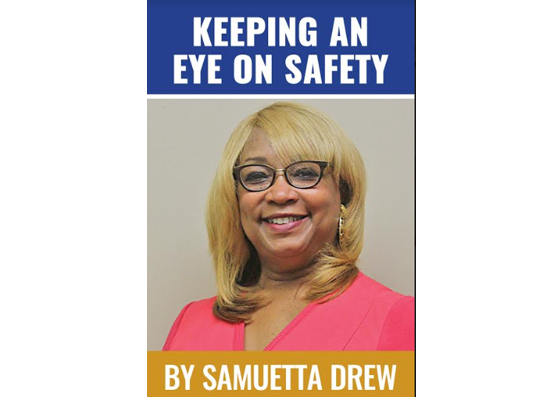By Samuetta Hill Drew
Last week’s article dealt with the all-important question whether to mask. This week’s article will delve a little deeper on the scientific whys behind The Centers for Disease Control and Prevention (CDC) and The World Health Organization (WHO) new endorsements of widespread wearing of face masks in public. The article will explore recent test findings about how the coronavirus COVID-19 spreads. In my attempt to provide factual information to readers versus sharing my assumptions or opinions, the article will again contain content from those two aforementioned organizations, as well as other recent research findings on this particular topic.
So, has wearing a face mask been proven to protect against the spreading or contracting of the coronavirus COVID-19? The answer is yes. Face coverings/masks, along with the frequent washing of one’s hands and practicing social distancing will help slow the spread of the virus. To better understand the “yes” requires understanding some key concepts (the whys) about how the coronavirus COVID-19 spreads.
It has been proven that the coronavirus COVID-19 is spread through respiratory droplets expelled by an infected person, such as during a cough or sneeze. Depending upon the person and force of the breath, these droplets could be large enough to see such as spitting during a hacking cough or so tiny that they hang in the air and are invisible to the naked eye (regular breathing).
Safety and health professionals have a term for the very tiny particles that get suspended in the air. They are called aerosols. It is now their joint belief that the coronavirus COVID-19 can become aerosolized. Which is critical to understanding how the virus spreads. That’s because gravity forces larger particles to the ground fairly quickly, but smaller, aerosolized particles can linger in the air for a much longer time. Being suspended in the air makes it much more likely for a virus to be breathed in, versus being on a surface and needing to be brought to our face by our hands.
So, does wearing a mask protect the people wearing them or the people around them? The answer is both.
Masks may be more effective as a “source control” because they can prevent larger expelled droplets from evaporating into smaller droplets that can travel further.
Dr. Peter Chin-Hong, M.D., an infectious disease specialist, stated, “there’s evidence to say that the best benefit is for people who have COVID-19 to protect them from giving COVID-19 to other people, but you’re still going to get a benefit from wearing a mask if you don’t have COVID-19.” It is important to remember you are not able to look at a person and determine if they have the COVID-19 virus.
“The concept is risk reduction rather than absolute prevention,” says Chin-Hong. “You don’t throw up your hands if you think a mask is not 100 percent effective. That’s silly. Nobody’s taking a cholesterol medicine because they’re going to prevent a heart attack 100 percent of the time, but you’re reducing your risk substantially.”
So, to help Keep an Eye on Safety, let’s refer to Chin-Hong’s recommendation which is the “Three Ws to ward off COVID-19 – wear a mask, wash your hands and watch your distance. But of the three, the most important thing is wearing a mask.




